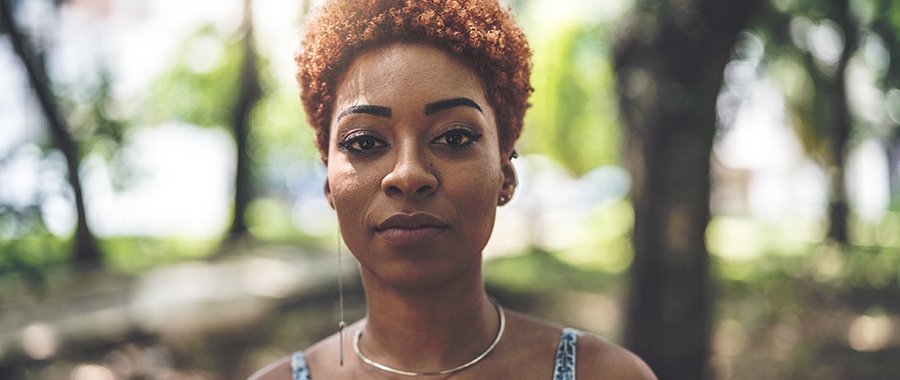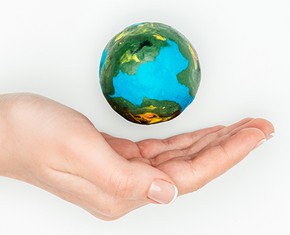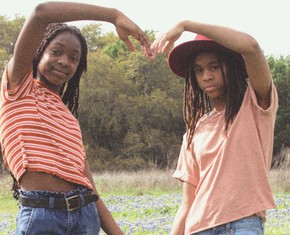The views expressed in our content reflect individual perspectives and do not represent the authoritative views of the Baha'i Faith.
I grew up hearing the phrase “moderation in all things,” taken from this timeless advice in the Baha’i teachings:
It is incumbent upon them who are in authority to exercise moderation in all things. Whatsoever passeth beyond the limits of moderation will cease to exert a beneficial influence. – Baha’u’llah, Tablets of Baha’u’llah, p. 169.
Baha’u’llah’s advice to those in authority can apply to all of us, too. In fact, that advice has helped humanity for centuries. The ancient Greek poet Hesiod said “observe due measure; moderation is best in all things,” and the Roman playwright Plautus wrote “moderation in all things is the best policy.”
This moderation mantra, iterated as the answer to many advice-seeking questions I would ask my peers and elders, has become something of a reflexive thought that pops into my head whenever I’m trying to find balance in my life.
I’ve come to realize that sometimes practicing moderation is easier said than done. In a perfect world, I would work, play, act, reflect, and pray moderately, but it can be hard to define what moderation looks like in every situation. For example, moderation looks different when I’m eating versus when I’m working or exercising. I might want to work more on one day because I have the time, and less on another because I worked overtime the day before. Finding balance for myself is an exercise in aligning with what will keep me healthy and capable.
There are efforts in my life that feel a lot more pressing than others, like working towards the eradication of racism. With the way Black people are publicly and systematically targeted for injustice, every day that passes by is an opportunity for creating healing, reparation, conversation and action. I know that ridding our society of racism will take time, however I’m trying to do whatever I can to help speed up the process because of how devastating it is to see the blatant disregard for Black people’s lives and the destruction of our communities.
I believe that everyone can play a part in the dismantling of racism, and depending on the way racism affects you, your role in the work looks different. As a Black Baha’i, I’m constantly trying to balance my role in eliminating racial prejudice with the principle of moderation in all things—and with this circa-1938 advice from Shoghi Effendi, the Guardian of the Baha’i Faith:
Let the white make a supreme effort in their resolve to contribute their share to the solution of this problem, to abandon once for all their usually inherent and at times subconscious sense of superiority, to correct their tendency towards revealing a patronizing attitude towards the members of the other race, to persuade them through their intimate, spontaneous and informal association with them of the genuineness of their friendship and the sincerity of their intentions, and to master their impatience of any lack of responsiveness on the part of a people who have received, for so long a period, such grievous and slow-healing wounds. Let the Negroes, through a corresponding effort on their part, show by every means in their power the warmth of their response, their readiness to forget the past, and their ability to wipe out every trace of suspicion that may still linger in their hearts and minds. Let neither think that the solution of so vast a problem is a matter that exclusively concerns the other. Let neither think that such a problem can either easily or immediately be resolved. Let neither think that they can wait confidently for the solution of this problem until the initiative has been taken, and the favorable circumstances created, by agencies that stand outside the orbit of their Faith. – Shoghi Effendi, The Advent of Divine Justice, p. 40.
This passage helps me understand, deep down, that the ones who must exert the most energy dismantling racism are white people—but when that doesn’t happen, the responsibility often falls on Black people and other people of color. This complacency is a form of violence in itself. In this case, ignorance isn’t bliss, it’s dangerous and unsustainable.
How am I supposed to play my part and work on unlearning my internalized oppression and suspicion if I’m busy educating my white friends? If they’re not doing the work themselves to reflect and unlearn racist tendencies, on what basis can I grow to be less suspicious?
Here’s one answer: self-care is an important framework for me in knowing when to step up or step back in the work to end racism. I can check in with myself before engaging in a conversation with someone, watching a particularly powerful movie about slavery, or reading another book about the impact of the prison system. If I’m not in a place mentally to be able to handle that draining type of content or interaction, practicing moderation means taking care of myself and logging off of social media, or turning off the TV.
Moderation is the cure for burnout, an issue that plagues those in activist circles. It can look like not reading your emails over the weekend, making time daily to go on walks outside, or saying prayers instead of responding to a negative comment, whether in person or online. The power of self care and moderation shouldn’t be underestimated. As Baha’u’llah pointed out, moderation can help us continue to exert a beneficial influence in the world.
















Comments
Sign in or create an account
Continue with Googleor